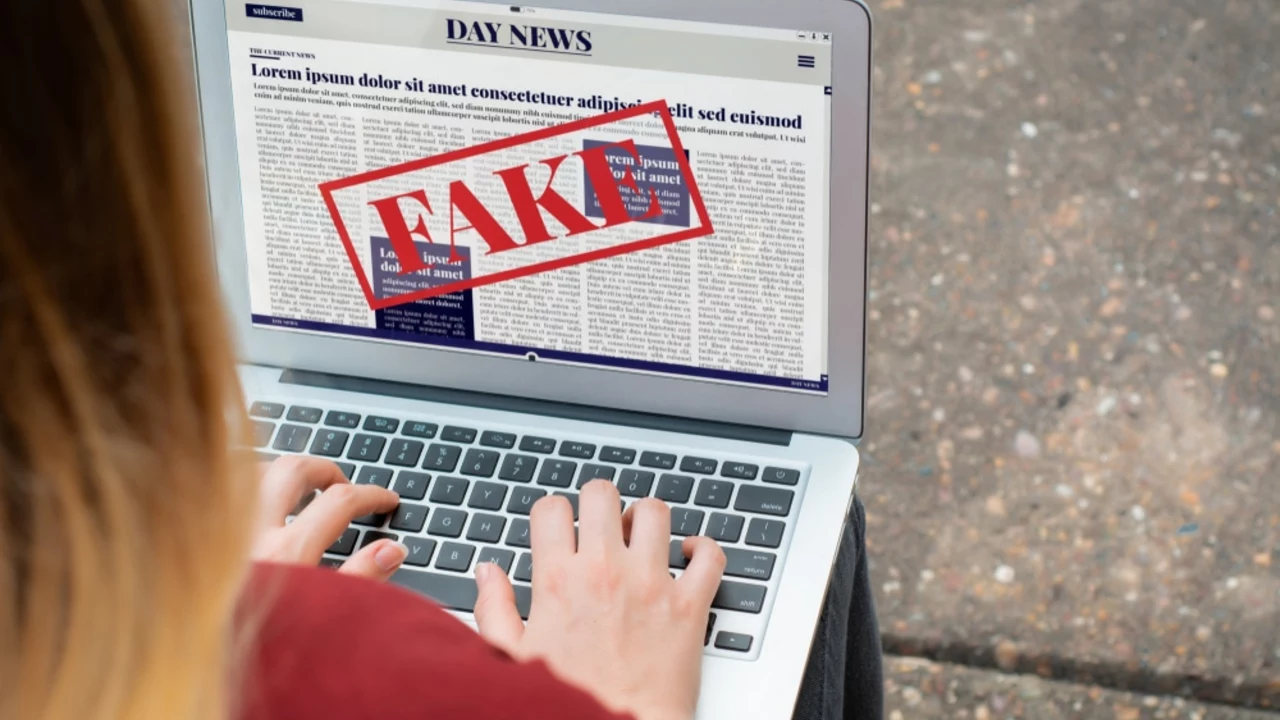The Intricate Web of 'Fake News'
Imagine this, I'm lounging with my amicable beagle, Baxter and Maine coon cat, Penny late evening. Baxter with his tail wagging at the speed of light and Penny, the ever so mindful, I tell you, their curiosity knows no bounds. The TV was on and news about some rather amusing incident involving an alien abduction was playing. "Ridiculous! Preposterous!" I exclaim as Baxter and Penny give me that nonchalant look, as if saying "well, this is sort of news we're used to hearing". In this sublime moment, I realized humans are fast becoming Penny and Baxter, well, minus their fur and maybe that tail. It's evident that the influence of fake news in social media platforms and the virtual landscape as a whole is reaching alarming levels and it's necessary to understand the concept and impact fully.
Understanding the Beast
Fake news is like that bad apple in the bunch, or that stubborn stain on your favorite shirt, difficult to disregard and even harder to get rid of. I have always been of the notion that understanding the beast is the first step to fighting it. So, what exactly is this beast, termed as fake news? Fake news is spurious news or hoaxes spread via traditional news media or social media. This beast wears many cloaks, be it clickbait that entices you to open that article only to be greeted by a completely irrelevant narrative, or propaganda spread with a motive.
My Stint with the Monster
Now I remember, once when I was just minding my own business, enjoying my morning cup of Joe, going through a social media site, out came this post, claiming the end for all coffee lovers. The post declared the extinction of coffee beans! Being a devout coffee lover, I almost spilled my divine elixir. Suddenly, the coffee in my hand seemed like a treasure. It turned out later, of course, that it was a marketing ploy by a company selling a coffee alternative. Oh, the deception. But truth be told, it does highlight how susceptible we all are to believe what we consume through social media.
Role of Social Media
Today, social media isn't merely a platform to share your pictures of that avocado toast you had or selfies with your pets. It’s become a powerful tool that shapes our opinions, our mindset. Now, I love to share pictures of Penny and Baxter's delightful antics on my social media, but such frivolity should not overshadow the true power that these platforms have. With great power, as they say, comes great responsibility. Hence, it's crucial for these platforms to play a responsible role in combating the spread of fake news.
The Question of Filters
Now comes our crucial and somewhat controversial question: should social media filter out fake news? While on one side there's an argument that claims such a step would curb the freedom of speech, others see it as a necessary move to prevent online hoax peddlers from spreading disinformation. I liken the debate to choosing between two difficult tricks while teaching Baxter, either way, he's not going to be pleased, but it must be done.
Filtering: The Good, the Bad and the Ugly
The Good: The most apparent and the most substantial benefit of filtering out fake news is the eradication of false information and stooping its spread. It keeps the social media landscape clean and reliable. It raises the standard of news and information available and ensures public discourse remains about key issues that truly matter.
The Bad: Filtering out fake news can lead to suppression of freedom of speech and expression. In the wrong hands, it can silence alternative narratives, differing perspectives and can subtly lead to a monopolistic control over the information. It can also result in political manipulation, and we all know how that story goes.
The Ugly: Finally, it can lead to the creation of biases in the algorithms that filter the news, it can get murky and things could quickly spiral out of control. Ensuring that the filters are unbiased and fair is a feat in itself. One wrong tweet and it's a full-blown scandal. Moreover, it could lead to political and social turmoil.
Conclusion: A Tricky Balance
In the end, it's a tightrope that social media platforms need to walk. One side is the fight against misinformation, and on the other is the risk of curbing freedom of speech. Drawing the line between the two is a complex task. It's like trying to balance Baxter and Penny on a seesaw, except in this case, failure is not an option. Thus, while it's essential to tackle fake news, it's equally important to do so without trampling on the right to free speech. After all, in the grand scheme of things, holding balance is often the key to harmony.
